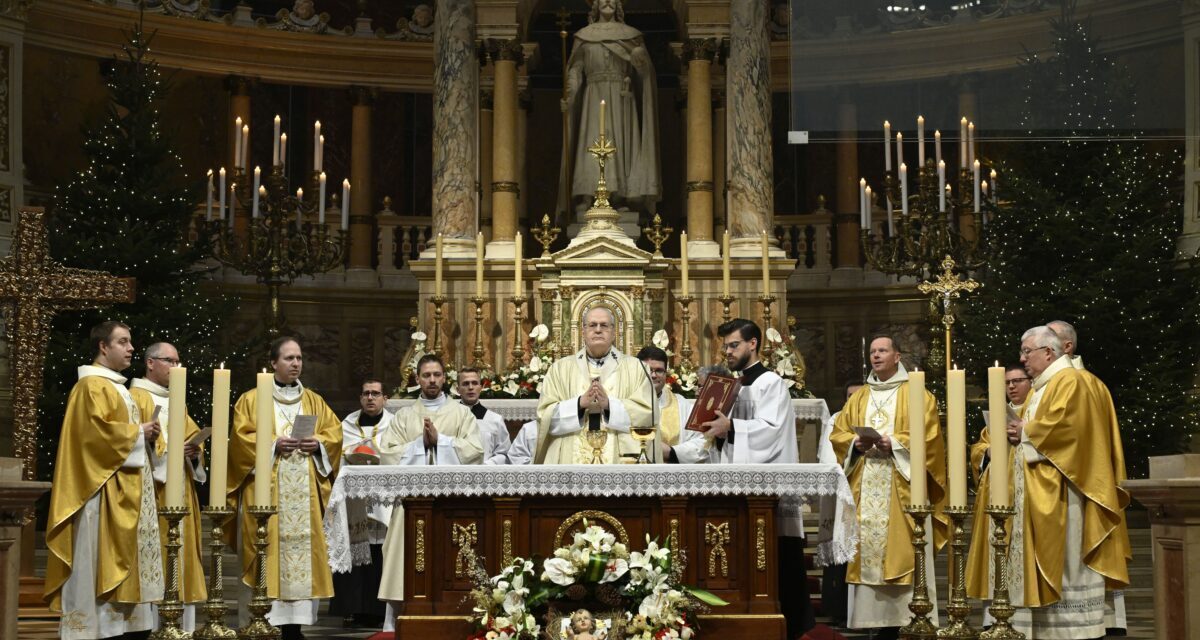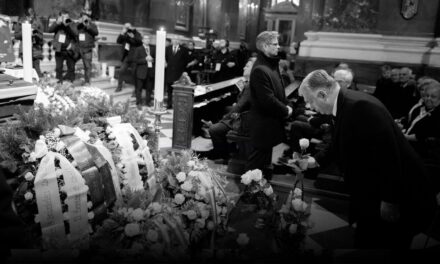Let us be witnesses of divine mercy and trust in the world, asked the cardinal.
Our Christian mission is to be signs of hope for humanity - said Cardinal Péter Erdő, Archbishop of Esztergom-Budapest, on Sunday in the St. Stephen's Basilica in Budapest, at the archdiocese opening ceremony of the holy year.
The jubilee year 2025 began on Christmas Eve, when Pope Francis opened the holy gates of St. Peter's Basilica in Rome, and in the dioceses of the world outside of Rome, the festive masses that open the holy year are presented on Sunday.
Péter Erdő recalled in his homily: Pope Francis gave the Holy Year the motto "pilgrims of hope", and we especially need this hope now.
Wars are raging in the world, lies and hatred are spreading, the fear is growing that we are destroying the world and that we are not able to stop the destructive processes, and young people feel that there is no future ahead of them. Seeing this, we feel our Christian mission: "we must be signs of hope for the whole of humanity," said the cardinal.
Our hope has a solid foundation, he said, adding that it is exactly what we celebrated at Christmas: God became man for us, assuming a shared destiny with humanity. "Let us begin the holy year in the joy of this truth and be witnesses of divine mercy and trust in the world," asked the chief pastor.
Péter Erdő touched on: the jubilee year is the Christian continuation of the Jubilee year of the Old Testament. The goal of the Year of Jubilee was to end unjust relations, to restore harmony between God and the chosen people, to repent and renew, he said, adding that we do not know exactly how much the old regulations were implemented in practice.
The Christian jubilee years have been announced by the popes since 1300, first every hundred and then every twenty-five years. During the Holy Year, those faithful who truly repent and pray for the intentions of the Roman Pope can receive a complete absolution, he said.
A special act of repentance can be visiting one of the four great basilicas in Rome and participating in any liturgical event there, visiting the Basilica of the Holy Sepulcher in Jerusalem, the Church of the Nativity in Bethlehem and the Basilica of the Annunciation in Nazareth in the Holy Land.
In the Archdiocese of Esztergom-Budapest, the places where the indulgence can be obtained are the Basilica of St. Stephen, the Basilica of Esztergom, the Matthias Church, the Church of Maria Hermitage, the Franciscan Church of Pest, and the Church of Péliföldszentkereszt, explained Péter Erdő.
For the ancients, pilgrimage did not primarily mean tourism, but was an expensive, laborious and dangerous act of repentance - reminded the cardinal, asking that those who make a pilgrimage to a place of worship in the following year should also think about this.
The 27th Holy Year in the dioceses ends on December 28, 2025, and ends on January 6, 2026, with the closing of the holy gate of St. Peter's Basilica.
The church holds a regular Holy Year every 25 years, the previous Saint II. It was during the papacy of János Pál, in 2000. In 2015, Pope Francis declared an extraordinary holy year, the theme of which was mercy, and it lasted from December 2015 to November 2016.
MTI
Cover photo: Cardinal Péter Erdő, Archbishop of Esztergom-Budapest at the archdiocese opening ceremony of the Holy Year in the Saint Stephen's Basilica on December 29, 2024
Source: MTI/Péter Lakatos













